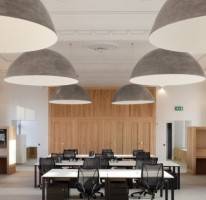June 30, 2014
As UK extends flexible working rights, nearly half of people say they’re not equipped
 As the UK extends the right to request flexible working to millions of new workers, a new and unsurprising survey from Virgin Media Business claims that nearly half (44 percent) of the country’s businesses do not equip staff properly to do their jobs away from a main office. The survey of 1,274 people already working remotely found that only 30 percent of firms supply staff with a corporate approved smartphone and a mere 16 percent offer tablet computers. Other problems highlighted in the survey include problems accessing broadband (cited by 36 percent), access to company information (32 percent) and access to emails (21 percent). The survey also reported a mismatch between employer and employee when it comes to perceptions of security. While only 22 percent of staff feel it is a concern, 50 percent of them concede that it is a major issue for their employers.
As the UK extends the right to request flexible working to millions of new workers, a new and unsurprising survey from Virgin Media Business claims that nearly half (44 percent) of the country’s businesses do not equip staff properly to do their jobs away from a main office. The survey of 1,274 people already working remotely found that only 30 percent of firms supply staff with a corporate approved smartphone and a mere 16 percent offer tablet computers. Other problems highlighted in the survey include problems accessing broadband (cited by 36 percent), access to company information (32 percent) and access to emails (21 percent). The survey also reported a mismatch between employer and employee when it comes to perceptions of security. While only 22 percent of staff feel it is a concern, 50 percent of them concede that it is a major issue for their employers.
























June 27, 2014
Physical workplace should provide an environment in which people can thrive
by Bostjan Ljubic • Comment, Facilities management, Workplace, Workplace design
(more…)